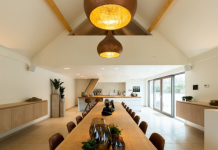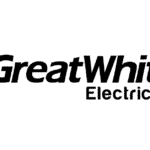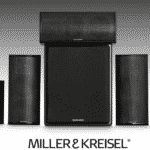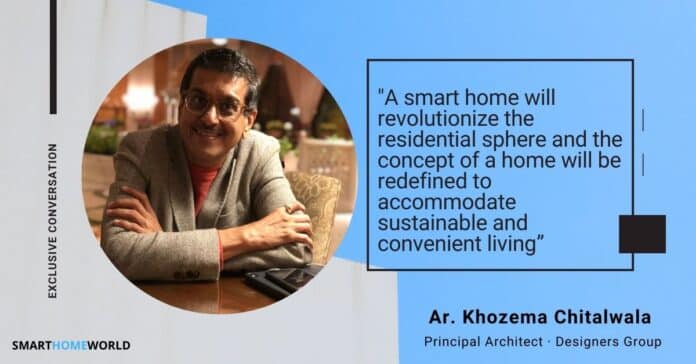
The tech-savvy era has changed the meaning of what it means to be technologically advanced. “One of the best ways I think technology can be used in a smart home is by having remote control over devices. For instance, you may want to make the house cooler on a hot summer day. But you can do this by sitting in your office. You may also check that the geysers and the ovens are switched off when you are out running errands”, states Ar. Khozema Chitalwala, Principal Architect and Designer, Designers Group. Another great benefit of a smart home is that it saves a lot of energy. A smart home can predict your user patterns and control the temperature after a person has been using the technology for some time. The AI can also suggest smart solutions that will minimize electricity use. “A smart home will revolutionize the residential sphere and the concept of a home will be redefined to accommodate sustainable and convenient living”, adds Chitalwala.
Why do you think the concept of smart homes is gaining rapid popularity these days?
Everything in the world moves forward and we are living in a digital world. Similarly, there is no reason why homes should exist in the 20th century while we are living in the 21st. I think smart homes are gaining more traction in recent years as they offer more security. This is especially pertinent in India, where homes usually have multigenerational families living together. It offers premier surveillance over the elderly and children, so parents can look over them even if they are not with them. Another thing is that smart homes can keep homes safe from intruders, which is very important for people who are living alone or travel frequently. Convenience is something people pay good money for. Smart homes are more than voice-controlled lighting and AC systems. It may also include GPS navigation connected to entry and exit and proximity door unlocking. There is also a lack of manpower. There is a general brain drain that is happening in India, so the fleet of workers available is rapidly shrinking. To have smooth sailing machinery in the home, smart tech devices will be replacing the manpower.
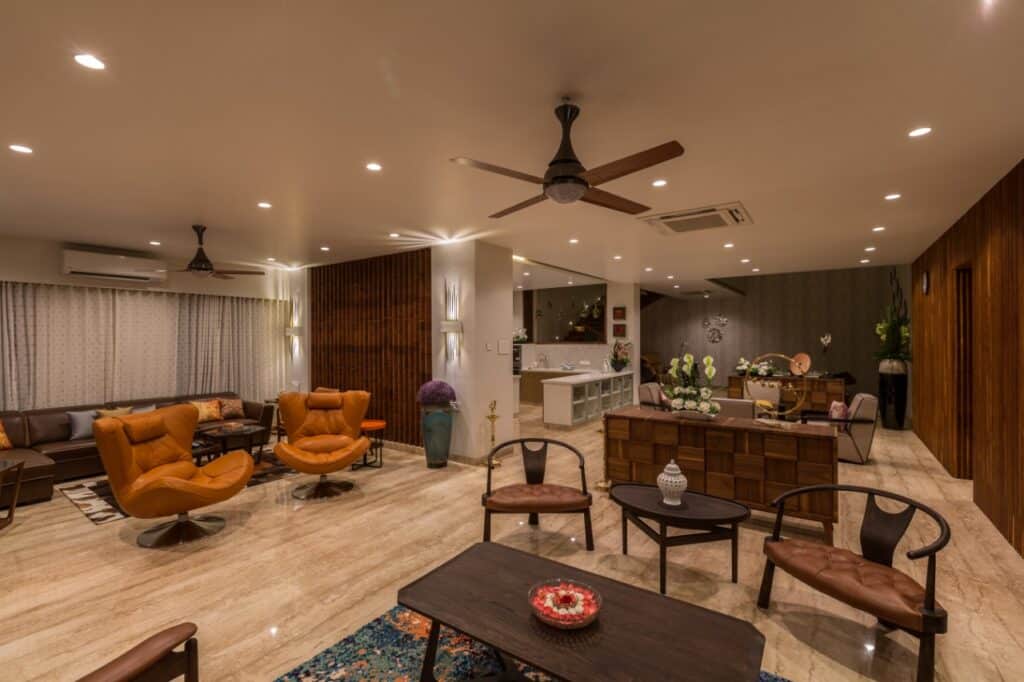
Who(consumer groups) are opting for smart homes the most?
From my experience, I have seen that technology is rapidly advancing in various spheres. In western countries like the USA and Canada, upper middle class to middle-class individuals can afford some elements of a smart home that include state-of-the-art kitchen appliances and voice-controlled lighting, and good home entertainment systems. Devices like Alexa and Google Home have also allowed families to enjoy the benefits of an automated home on a budget. But when I am talking about the Indian demographic, I can say that there is a lack of awareness regarding the benefits a smart home might offer. They only tend to focus on the security features, while smart homes are much more than that. If the security features offered are mediocre, people will often reject them. Also, people want a good smart home on a constricted budget. They are only willing to scale their budget by 1% to 3% to get a smart home. In India, smart homes are more expensive than the rest of the world, so only the wealthy can truly afford such a house. So, based on my observations, I may assume that the highly educated, tech-loving, and relatively rich people are opting for smart homes the most. Also, there are levels of smart homes. The most basic smart home will have a split air conditioner with smart energy-saving technology. There has been some sort of gatekeeping going on which strictly thinks of smart homes to be cutting edge. While smart homes are cutting edge, they are all about far-reaching convenience that will allow people to opt for them more.
Which category of smart home devices is witnessing maximum demand? Which do you think are the must-have devices in contemporary homes today?
In my opinion, home tech products like Alexa and Google Home are smart home devices. While a fully smart home is not widely accepted in India, I might assume that devices like Alexa are more popular when compared to technologies like an automated HVAC system or a Roomba. Because of their wide availability, easy instalment, and relative affordability, at-home consolidating systems are much more in-demand. Such devices might make living for people more convenient as they offer services that include speakers, notepads, and reading audiobooks. Therefore, the need for separate devices like speakers and writing paper becomes obsolete. Of course, washing machines and drying machines are also seeing an increase in their demands as they are an important part of any household these days – people do not want to wash all their clothes by hand during a pandemic. The must-have devices in the quintessential modern home might be an outdoor wifi plug or a smart outlet. There is a large chunk of people opting to live in row houses or bungalows with their backyard or front yard. They might like to work outside in the fresh air, but due to the limited range of the wifi router, they are often stuck inside. A great way to ensure that devices like laptops and mobile phones are connected to the internet might be through a wifi plug or extender. Additionally, a smart outlet can serve as a stepping stone for creating a smart home. Such plugs will be able to connect to iOS and Android systems and are also compatible with Alexa and Google Home. Washing machines and AC units are also important tech devices homes should have. In the coming years, such systems will become essential to live in an urban environment as they offer easy-to-use and easy to install as well.
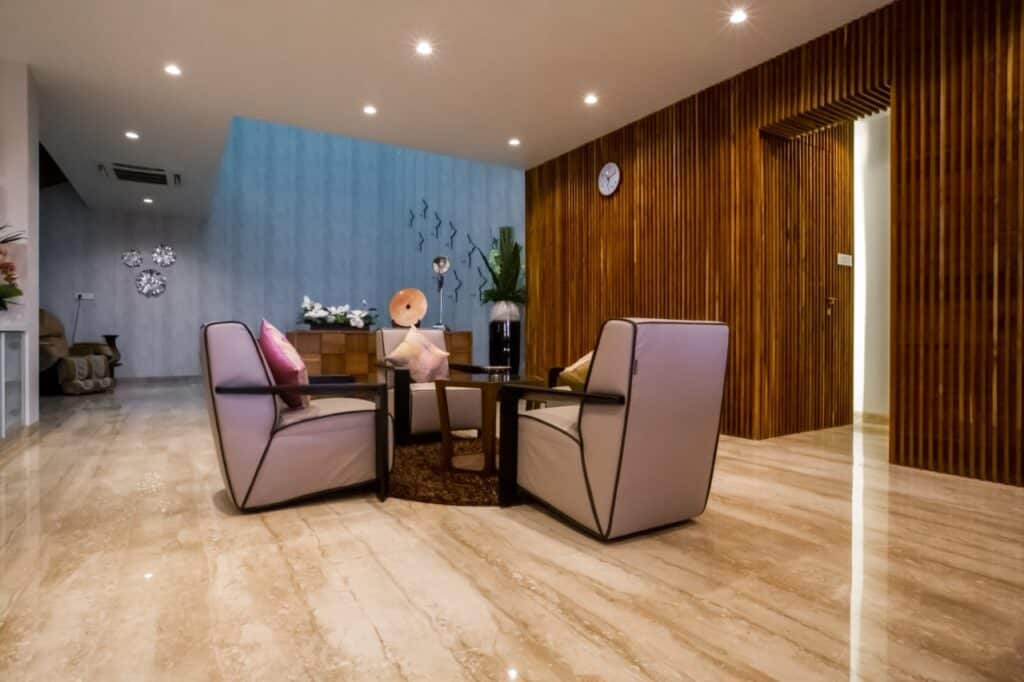
How would you define the current demand for smart home integrations?
The demand for smart home integrations is very high. But many people have major misconceptions regarding what smart technology is. Smart technology can be found in the most mundane appliances like the dryer. Everything from your car to your smartphone is all smart technological pieces that are indispensable. However, due to the general acceptance and need, our modern lives have for these devices, it is time we increase our thresholds for the standards. As I mentioned before, smart home solutions and integrations are very easy to use, but there is an overarching theme of lack of awareness. However, due to several schemes adopted and practised by the government of India, like Make In India and Digital India, the benefits of technology may be accessed by all. These schemes are relatively new and will take a few more years to achieve fully technological integration in the houses and the public spaces. Now, awareness is slowly increasing which might ensure the use of technological devices in homes. So keep this information in mind, the current need for smart home integrations can be defined within the limits of the awareness created.
Which sector(hospitality, residential, commercial) do you think needs smart technology the most? Why?
Smart technology can be extended to all spheres in life. The most common application for smart technology that I have seen is in houses and residential spaces. But I think that the sector that will benefit the most will be the hospitality sector. Fitness to health monitoring, digital wearables like FitBit and Apple Watch are becoming all the rage. They are useful to count calories for fitness enthusiasts as well as monitor EGC and the oxygen blood level (only in the latest Apple Watch). Such handy technology devices are changing the healthcare industry, making keeping a track of heart rate and calories very easy.
How much popularity has the concept of smart homes gained in tier 2 and tier 3 cities? Why?
There will be a generally slower uptake and acceptance of smart homes in tier 2 and tier 3 cities. Metro cities like Mumbai and Delhi will have a comparatively easier time accepting smart homes. Now, the impact of government schemes like Digital India should not be underestimated. Such schemes have started to convert tier 2 and tier 3 cities into smart cities. I think, once a city will have free, local wi-fi, people will be more accepting of the idea of living in a smart home.
How do you foresee the Smart Home Industry 5-8 years down the line?
Today, the scope of a smart home will exist in independent vacuums. So your smart home will have independent areas of functioning. The kitchen will be one arena that will not be able to communicate with the entertainment system. But there is some consolidation seen in a smart home with the help of appliances like Alexa. But this is a tiny step. Surely, AI-based tech is doing a great job of predicting patterns that will help in reducing energy consumption. But five years down the line, the main aim of the predictive AI will be to increase the comfort of the resident. It may seem like a far-fetched dream but in the future, AI will be the basis of smart home tech. There will also be a full immersion in the Internet of Things (IoT). advancements in the IoT will enable the tech devices to learn more about the resident and will be able to control and predict the environments, which will be much more integrated.








